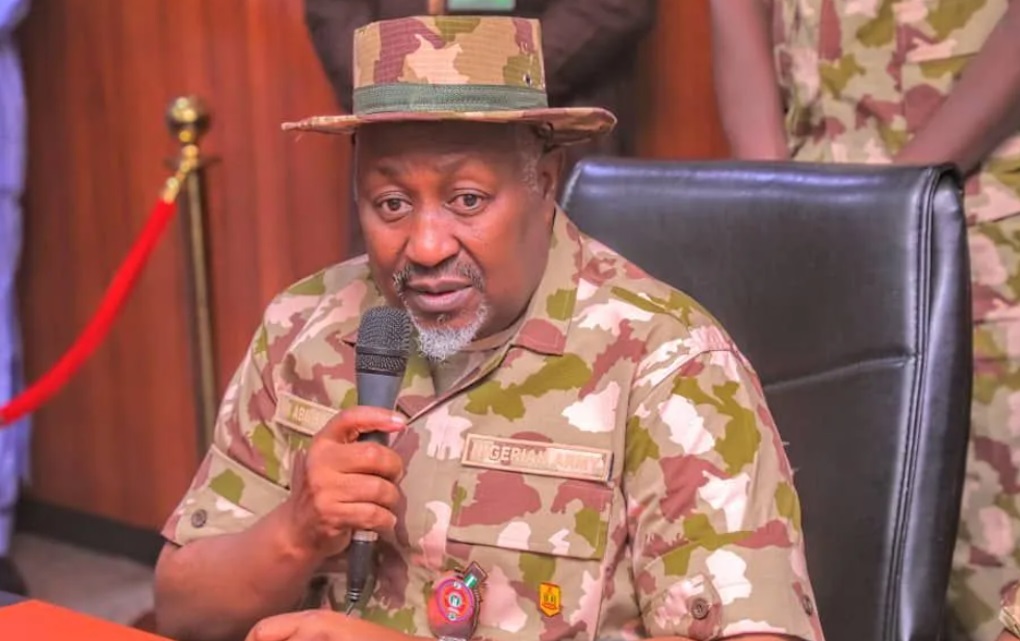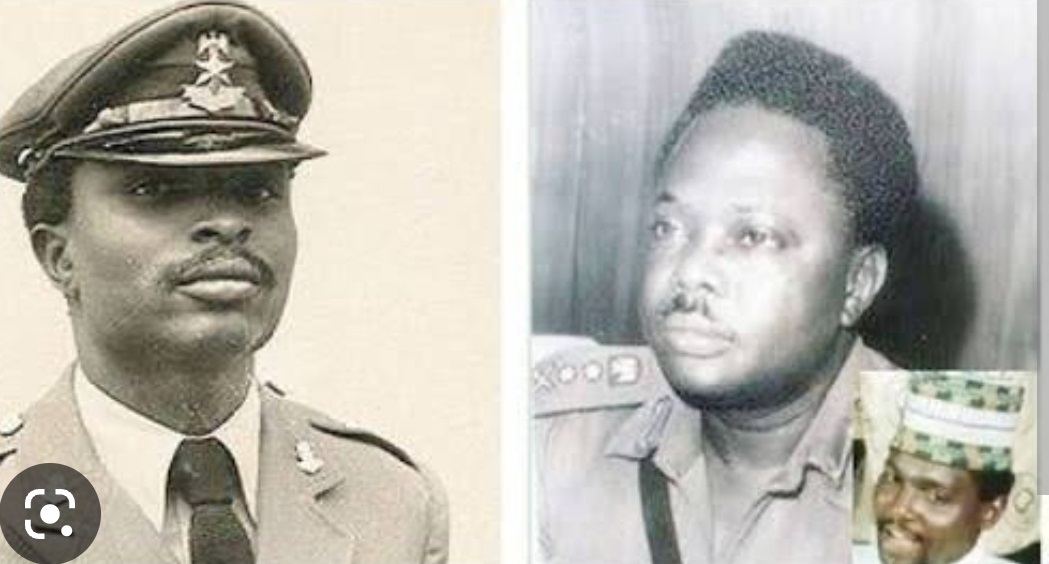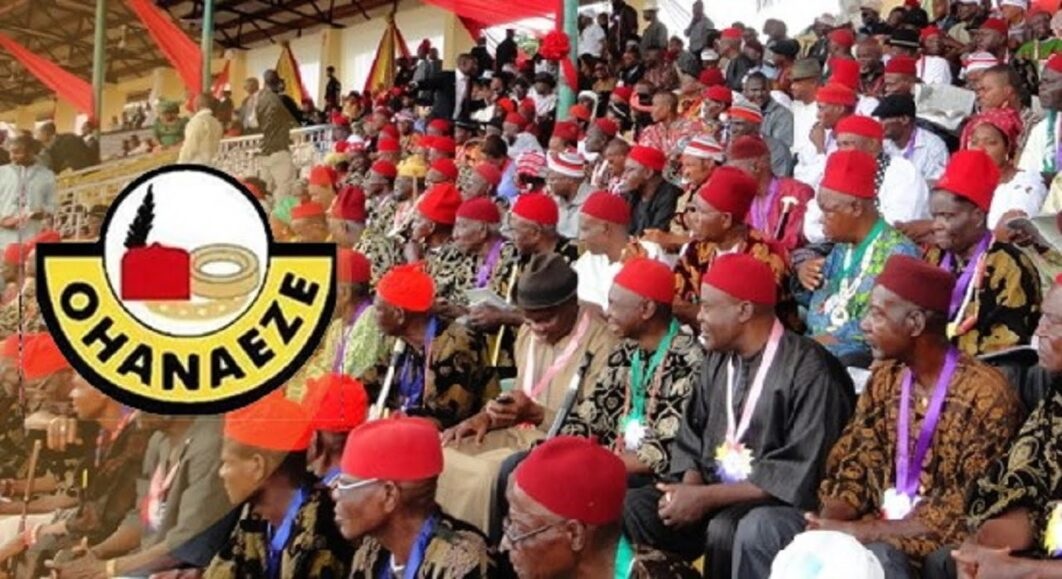News
Just in: Spain’s last minute move sink England’s hopes at Euro 2024 final

By Kayode Sanni-Arewa
Substitute Mikel Oyarzabal scored four minutes from time to give Spain a deserved 2-1 Euro 2024 final victory over England on Sunday and a record fourth European crown, as Gareth Southgate’s team lost in their second successive final.
Oyarzabal combined with Marc Cucurella on a swift counter-attack for the winning goal as Spain were crowned champions, having won all seven games they played in the tournament.
After an extremely cautious first half where Spain had more possession and their opponents got the only shot on target, it only took two minutes after the restart for the Spaniards to break the deadlock.
Teenager Lamine Yamal found space down the right and crossed for fellow winger Nico Williams to slot home as England fell behind for the fourth successive match.
Spain then enjoyed a purple patch with a series of attacks as England’s previously watertight defence fell apart.
England boss Gareth Southgate reacted by sending on Ollie Watkins, the goalscoring substitute hero of the semi-final, for an ineffective Harry Kane after an hour, with Cole Palmer, their most creative player for the last month, joining him 10 minutes later.
It paid off almost immediately when Jude Bellingham laid the ball back into Palmer’s path and the substitute curled home a precise low 20-metre shot in the 73rd minute.
The massed ranks of England fans, who vastly outnumbered their rivals, exploded and the whole feel of the night changed.
Spain, however, weathered the storm and, Oyarzabal who came on in the 68th minute, struck.
There was still time for more drama at the other end as Spain goalkeeper Unai Simon parried a Declan Rice header from a corner and Dani Olmo blocked Marc Guehi’s follow up on the line. [Reuters]
News
We are achieving success as insecurity in the Northwest is diminishing – Defence Minister

Alhaji Muhammed Badaru Abubakar, Nigeria’s Minister of Defense, has reported a considerable improvement in the security situation in the Northwest and north-central regions of the country.
He ascribed this positive development to persistent and coordinated military actions against banditry, particularly in the states of Zamfara, Sokoto, Niger, Katsina, and Kaduna, where security challenges have been notably severe.
Speaking to journalists in Birnin Kudu, the headquarters of Birnin Kudu Local Government Area in Jigawa State, the minister reaffirmed the federal government’s commitment to completely eradicating insurgency before the year ends.
According to him, various stakeholders—including opinion leaders, civil society organizations (CSOs), and local residents—have acknowledged a noticeable reduction in terrorist and bandit activities.
“From the feedback we are receiving, people across the affected areas are confirming that the security situation has improved significantly. However, despite these positive developments, we remain committed to building on these achievements,” he said.
He further emphasized that the government is prioritizing adequate logistical support for the armed forces to ensure they have all necessary resources to maintain and enhance security efforts throughout the year.
News
FLASH BACK: Orderly Shares authentic story of General Murtala’s escape from Dimka’s initial gunfire

…says he would have survived the coup
Had the coup plotters led by Lt. Col. Buka Suka Dimka not noticed the door of General Murtala Muhammed’s Mercedes Benz car opened minutes after it was sprayed with bullets from AK-47 assault rifles, triggering another round of firing, perhaps the late Head of State would have survived the brutal attack.
The lone survivor and Orderly to the late Head of State, Staff Sergeant Michael Otuwu, broke his silence in a highly emotional interview with The AUTHORITY Daily, nearly 40 years after the tragic incident.
According to the Orderly, on their way to work on the morning of Friday, February 13, 1976, the Head of State left his personal house in Ikoyi and was headed to work in Dodan Barracks, the seat of government, which he said was being renovated at the time.
Otuwu disclosed that beside the Head of State was his ADC, Lt. Akintunde Akinterinwa, himself (Otuwu) directly seated in the front passenger’s seat, with Sergeant Adamu Michika behind the wheels.
According to the Orderly, as the unsuspecting car of the Head of State stopped before a row of cars at a junction, he noticed a man in a traditional attire, babanriga (he later identified him as Dimka) who approached the car, removed the flowing robe and pulled out an AK-47 rifle, shooting the driver in the head point blank.
According to the Orderly, having disabled the car by killing the driver, other soldiers clad in robes, ran towards Murtala’s car and opened fire.
“The Head of State, his ADC and I all ducked while the shooting lasted,” narrated the Orderly, sobbing uncontrollably as he recalled the traumatic incident. After the shooting, Otuwu continued, he heard the gunmen running towards the Radio House.
A few minutes later, he continued, he noticed that the injured ADC opened his door, apparently to come to the aid of the equally injured Commander-in-Chief.
According to the Orderly, the opened door alerted the assailants that the occupants of the vehicle were not dead – and this prompted the coup plotters to return a second time to, again, open fire on the car in order to finish them off. He passed out.
According to Otuwu, Generals TY Danjuma and Olusegun Obasanjo were lucky because they were also targets but escaped because they did not leave for their offices as early as Murtala did and they heard the radio announcement which may have fatefully altered their movement plans.
According to Otuwu, who enlisted in the Nigeria Army in 11 September, 1967, he had moved early that morning with the late Head of State from his Ikoyi residence to Dodan Barracks because the overthrown General Yakubu Gowon had not evacuated the official residence and it was not yet renovated.
His words:
“I was his Orderly throughout to his last day during the Dimka coup. I was inside the car with him when he was killed.
“On the morning of that February 13, we were going to the office. Sergeant Adamu Michika was the driver; Sergeant Akintunde Akinterinwa, his ADC, sat behind the driver. As an Orderly, I was in front with the driver.
“While the Head of State sat behind me – I was the one who opens the door for him. That fateful day I came up in the morning to carry him to the office in Dodan Barracks. We got to the former Secretariat, now at Ikoyi, which was under construction.
Before the place they call Alagbon junction, near the labour office. The official car was a Mercedes Benz 600. It is still at the National Museum. There were about four or five vehicles in front of us. You know at that junction there was traffic. We didn’t go with sirens. During his time we didn’t go with escorts with the accompanying out-riders, road-closed signs and all that.
So when we got to the Alagbon junction, the traffic warden stopped the vehicle and we were in the queue. We were the fifth or sixth vehicle behind the forward vehicles that were stopped. That secretariat was under construction.
They put zincs around the compound behind that secretariat. Then some soldiers came in Agbada carrying AK-47 rifles. “They wore uniforms but covered them with Agbada. They had their Kalashnikovs with Agbada cover-up in form of camouflage. We never knew they were even waiting for us. Then one soldier from Golf Road shot and got our driver, Sergeant Michika. Our motor was neutralized.
“Between me and the driver was an arm-rest. On that arm-rest was Oga’s brief case. In this brief case he puts civil dress he could use as needed. When he wants to go to Mosque, he does not like going back to Ikoyi to change.
“Then some other soldiers converged on us. I can’t recall their number. They began to spray us from the back. All of us took cover. I fell on top of the driver; the blood of the driver covered my head. They thought the bullet got my head.
“After the first shooting and without return of fire they must have assumed that we were all dead. The shooting was actually in two phases. They ran to the NBC to announce the assassination. They shared themselves into three.
“There was a group waiting for Obasanjo when he was about to go to the office. Also another group was waiting for TY Danjuma at Bourdillon – our own was at Ikoyi Road. It happened we were the first target that moved early from the house to the office.
“Before Obasanjo and TY Danjuma moved to their offices they have already heard the radio announcement. By the time of the first shooting, we being the target and their running to NBC to go and announce that they have already finished their assignment, the ADC who was still alive, thinking they were gone, opened the door of the Benz.
“In the first spraying of the car, except the driver who was killed, the three of us were injured but not dead. On observing the car door opening, one of the attackers, still within range, a Major, called to the others: “he never die, he never die.” He was calling his group to return.
“This time around when they came back they finished their entire magazines. That was what happened. They carried everybody to the mortuary at Igbosere Hospital, not far from Kam Salem Police Headquarters. Because of the extreme cold of the mortuary, my left hand started shaking and one of the attendants saw it and called the nurses or doctors and said somebody was still alive.
“From there they checked and confirmed I was still breathing. So they had to look for a vehicle to carry me to Dodan Barracks. From Dodan Barracks they looked for an ambulance and carried me to a hospital, Awolowo Road hospital, a military hospital.”
Otuwu, who hails from Kogi State, spent six months in the hospital after his miraculous survival. He has not been recognized by the army or the state.
Presently, he does a few jobs for late General Murtala’s son, in Abuja.
Credit: The Archives.
News
Babangida’s book: We demand an apology, N10trn compensation Ohaeneze tells Tinubu

Following the revelation by former military President Gen. Ibrahim Babangida during the launch of his book “A Journey in Service” that the 1966 coup was not an Igbo coup as alleged, the Igbo apex group, Ohanaeze Ndigbo, on Sunday demanded an apology and N10 trillion as compensation from President Bola Tinubu to the Igbo.
The group noted that the coup unleashed disastrous repercussions on the Igbo people, among other factors, which ultimately led to the cataclysmic horrors of the Biafra War.
In a statement obtained by The Guardian in Abakaliki, the Deputy National President of the Ohanaeze faction, Okechukwu Isiguzoro, noted that the apology and compensation had become necessary due to the staggering loss of life, with approximately three million Igbo—predominantly innocent women and children—slaughtered during the conflict, an event that continues to reverberate through the collective consciousness of the Igbo people.
He stated that the revelations would compel Nigerians to confront the stark injustices perpetrated against the Igbo people, insisting that President Tinubu must recognise this moment as an opportunity to extend a public and unequivocal apology on behalf of previous military regimes, particularly General Yakubu Gowon’s administration.
He added that such an apology was long overdue for the myriad wrongdoings inflicted upon the Igbo nation, which continue even decades after the conclusion of the Biafra War.
He noted that the demand for ten trillion naira in reparations remained steadfast, stressing that the figure was not arbitrary but a symbolic recognition of the indelible losses the Igbo people had endured.
He further stated that the Igbo people extended forgiveness to General Babangida and all others involved in the atrocities committed during the Biafra conflict, stressing that the confessions brought forth by Babangida should warrant accountability for those who participated in the tragic events that decimated the Igbo populace.
The statement read: “The apex Igbo socio-cultural organization, Ohanaeze Ndigbo, extends its profound appreciation to General Ibrahim Badamasi Babangida (IBB) for his remarkable courage in officially declaring that the January 1966 coup was unequivocally not an Igbo coup.
“This pivotal acknowledgement is not merely a correction of historical nomenclature but a significant moment in our collective pursuit of justice and reconciliation, signalling a potential end to the historical vindictiveness and cruelty that have been pervasive in Federal Government policies towards the Igbo Nation.
“His forthright exemption of the Igbo from the egregious classification as enemies of the Northern region in the aftermath of the coup is both timely and necessary, even if it arrives decades later.
“The mislabeling of the January 1966 coup has unleashed disastrous repercussions upon the Igbo people, most tragically culminating in the July 1966 counter-coup, which decimated a military Head of State of Igbo descent.
“The staggering loss of life, with approximately three million Igbos—predominantly innocent women and children—slaughtered during this conflict, continues to reverberate through our collective consciousness.
“Furthermore, even in the post-Biafra era, the Igbo Nation continues to grapple with systemic injustices, evidenced by acute marginalisation that leaves us with the smallest representation of states within the Nigerian federation.
“The political conspiracies designed to deny the Igbo the rights to ascend to the highest office in the land—Nigeria’s Presidency—the chronic economic neglect symbolised by the closure of the Calabar seaport, the inoperative state of several ports in Igbo land, the implementation of a discriminatory quota system, and the conspicuous absence of functional international airports in the Southeast starkly illustrate the Federal Government’s long-standing policy of exclusion.
“In light of these egregious injustices and the deliberate neglect exhibited by successive administrations, Ohanaeze Ndigbo hereby restates its demands, as articulated previously during the Justice Oputa-led Judicial Commission for the Investigation of Human Rights Violations Panel in 1999.
“We assert that the Nigerian Federal Government, under General Yakubu Gowon, conducted indiscriminate and unjustified bombardments in Igbo territory during the Nigeria-Biafra War, resulting in overwhelming loss of life. These historical realities establish an irrefutable case for the reparations we seek.
“The present Federal Government, led by President Bola Ahmed Tinubu, must recognise this moment as an opportunity to extend a public and unequivocal apology on behalf of previous military regimes. Our demand for ten trillion naira in reparations remains steadfast.
“This figure is not arbitrary but a symbolic recognition of the indelible losses the Igbo people have endured. The time has come for true acknowledgement of these historical wrongs, which can only be rectified through both reparations and sincere apologies.”
-

 News16 hours ago
News16 hours agoWhy Buhari govt was shoved aside – IBB
-

 News11 hours ago
News11 hours agoEx-UFC Champion, Adesanya replies critics
-

 News10 hours ago
News10 hours agoBabangida’s Book is filled with distorted facts, collection of lies, says Dele Farotimi
-

 News16 hours ago
News16 hours agoREVEALED! Gov Fubara Accused of Paying N4.8Bn Monthly to Ikenga Ugochinyere
-

 News16 hours ago
News16 hours agoHow CBN Spent $8bn On Naira Defence Against Dollar At FX Market
-

 News24 hours ago
News24 hours agoNSCDC, Tantita intensify joint efforts to combat oil theft in Niger Delta
-

 News16 hours ago
News16 hours agoKill your 2027 election, PDP, LP chieftains advise Atiku
-

 News18 hours ago
News18 hours agoThai lady arrested at Lagos airport with boxes of illicit drug consignments







